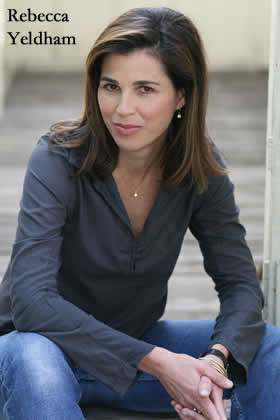 Rebecca Yeldham Director of The Los Angeles Film Festival, has built a career championing films and filmmakers as a producer, festival programmer and production and acquisition executive.
Rebecca Yeldham Director of The Los Angeles Film Festival, has built a career championing films and filmmakers as a producer, festival programmer and production and acquisition executive.
Yeldham recently produced THE KITE RUNNER, directed by Marc Forster (nominated for 2008 BAFTA and Golden Globe Awards), LINHA DE PASSE, directed by Walter Salles and Daniela Thomas (winner best actress 2008 Cannes Film Festival), and the upcoming release ANVIL! THE STORY OF ANVIL, directed by first timer Sacha Gervasi (2008 Sundance Film Festival, 2009 SXSW and Spirit Award nominee and Audience Award winner at the 2008 LA, Sydney, and Galway Film Festivals).
Bijan Tehrani: I believe this is your first year as the director of the Los Angeles Film Festival. Please tell us what changes are you bringing to the festival?
Rebecca Yeldham: Firstly, I joined the festival just under two and a half months ago, so I very much joined a moving ship, a very quickly moving ship, and really sought to build upon the structure of the existing festival, and build upon the excellent work that was already being done. I would say that it is really more of an evolution of what has existed before, more than any kind of dramatic shift this year. We’ve expanded the scope of films that are included in the festival; we will be launching the film festival with the world premier of an independent film, a really beautiful dramatic comedy from two new filmmakers with a lovely cast, and that is “Paper Man.” Then we also include two studio films, Michael Mann’s “Public Enemies,” and an English version of Hayao Miyazaki’s “Ponyo,” which is very beautifully and tastefully done with the voice cast of Cate Blanchett, Tina Fey, Matt Damon, Lily Tomlin, and more. One of new events at the Festival, is the expanded artist in residence program. I was interested in taking established artists, and practically those that don’t work primarily in the medium of film but who love movies, and give them an opportunity to participate in actual impact on the festival, pick a film and then create a forum of discussion around that film. Two of those artists this year are Khaled Hosseini, who is the author of “Kite Runner” and “A Thousand Splendid Suns,” who will presenting an Iranian film (“The Stoning of Soraya M.), and a discussion about representation of fundamentalist Islam in cinema. Also, Thom Mayne, the Pritzker Prize-winning architect is coming to have a conversation about the architecture of space in cinema and the influence of it on his work, and we will be having a conversation with the wonderful cinematographer Fred 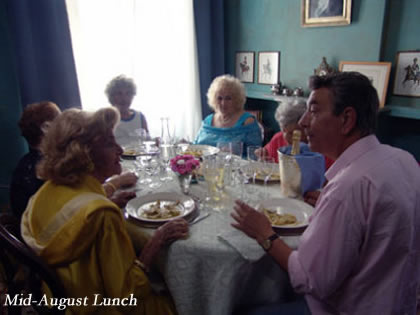 Elmes. We have lots of opportunities for encounters for filmmakers to meet more established artists and for our audiences to get in touch with the industry and the creators of the studio movies and independents. It is a really wide spectrum of work, with a real focus on the audience experience and filmmaker’s experience.
Elmes. We have lots of opportunities for encounters for filmmakers to meet more established artists and for our audiences to get in touch with the industry and the creators of the studio movies and independents. It is a really wide spectrum of work, with a real focus on the audience experience and filmmaker’s experience.
BT: There are thousands of film festivals around the world, but the ones that stand out are the ones that have a character of their own. How would you specify the character of the Los Angeles Film Festival?
RY: I think it is very reflective of the city we are in; it is sprawling and diverse, and there are pockets that specifically appeal to specific kinds of people, and other pockets that appeal to a very different kind of movie fan. Like LA, where you have a cross pollination of cultures and ethnic diversities informing the lifeblood of the city, that is true of our festival too. What is unique about the LA Film Festival is that this is a company town, filmmaking has a very dominant influence on the culture of this city, and that includes the Hollywood industry and the independent industry, and the festival reflects that, both in the spread of films we include in the festival, as well as the artists and persons who participate in our events, panels and conversations. We are really bringing our community in touch with the industry that is based here. If there is a particular international influence, I would say that we have a very strong Latin American presence at the Festival this year, which is really exciting. We will be looking to outreach to Latino communities in LA to participate in some of those events. We have the Ambulante documentary series that was founded by Gael Garcia Bernal and Diego Luna, which is a traveling documentary film festival of Mexican documentary films, which originally started in Mexico to serve underserved communities in Mexico. We have many films in the festival from Brazil, Chile, Peru, and Mexico this year.
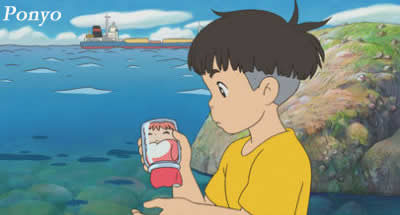 BT: What about films from the rest of the world?
BT: What about films from the rest of the world?
RY: We have thirty countries represented. There are Iranian films, Dutch films. We have a film from a first time Italian director called “Mid-August Lunch.” What is also interesting is that in a way cinema is evolving. When you talk about cinema without borders, this is something I have had personal experience on some of the films I have made. It is now very hard to identify a country of origin on these films because there is such a cultural pollination, and a transition across borders whether it is the money, the filmmaker, or the location of the film. Sometimes it is not possible to define what the nationality of the film is. We have a documentary that is in Dutch, German, French and Arabic with English subtitles. You have a filmmaker growing up in Iran, being raised in Scandinavia, and telling a story about her childhood. I think it is a very interesting time for a contemplation about cinema without borders, and that is definitely represented in the programming of the festival.
BT: Do you have international guests coming to the festival?
RY: Yes. We invited all the filmmakers to the Festival, and a number of the international filmmakers will be attending. We always launch the Festival with a beautiful retreat for the filmmakers, where all the filmmakers have an opportunity to gather before the Festival begins, and for a day and a night, have time to get to know each other. We also have some of our festival alumni, and members of Film Independent who are more established filmmakers attend with the other filmmakers in the Festival. It is a very special opportunity, particularly for the guests coming from out of town.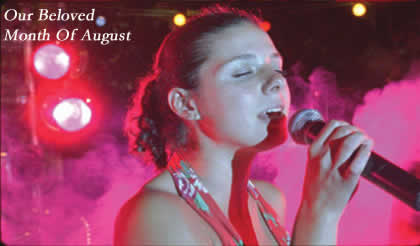
BT: There are lots of conversations going on at this festival, that makes the festival more active, and it also helps the audience to understand what is going on in international cinema. What are some of the highlights this year?
RY: This year we have a lounge that is designated for all of the filmmakers to meet and mingle. One of our sponsors, ZonePerfect Nutrition Bars, has the ZonePerfect live.create. lounge at the Festival. Then there will be a series of conversations and talks. We have a series at the W Hotel called Coffee Talks. We also have a series of panels at the W Hotel that have a more of an LA focus called Poolside Chats; about how LA is represented in cinema, who are the artists who aren’t working in the medium of film but inform the cultural life of the city. There is a panel called “Post-Gay Hollywood” about the next generation of movies that are either gay themed or have prominent gay characters, and what has been the shift over the years in terms of representation of gay content in cinema. For our fan boy audience we have a graphic novel panel. There are a lot of things running throughout the Festival, including the Ambulante panel, which is of particular interest to your audience; this will bring together not only the Mexican directors, but other filmmakers who also subscribe to this notion of filmmaking without borders, and whose work evidences being story tellers in an increasingly global world.
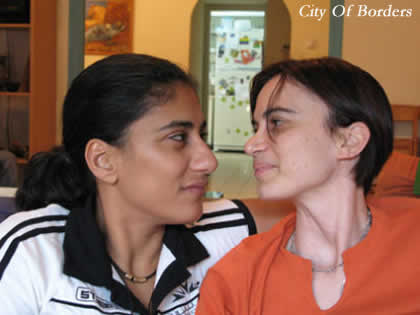 BT: It is always hard to ask the director of an event if you have a favorite among the films or events during the festival, but do you have a favorite?
BT: It is always hard to ask the director of an event if you have a favorite among the films or events during the festival, but do you have a favorite?
RY: What I love about this program is that it has a very strong point of view. There are films in this program that I might love, or that Rachel Rosen (Director of Programming) might love, but that other members of our team took issue with. But they are movies that often provoke a debate, which is what is so exciting about not only presenting this spectrum of films at the Festival, but also creating opportunities within the village at the Festival to create a dialogue about the films. There will be lots of rich conversations following many of our films, but that is now to say that we have programmed to be purely provocative, because there are lots of purely entertaining films in the mix too. But we are very interested in encouraging a dialogue.
Please check LA Film Festival site.

